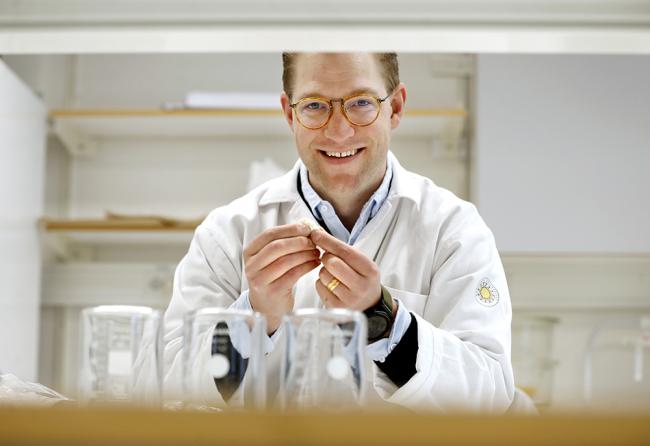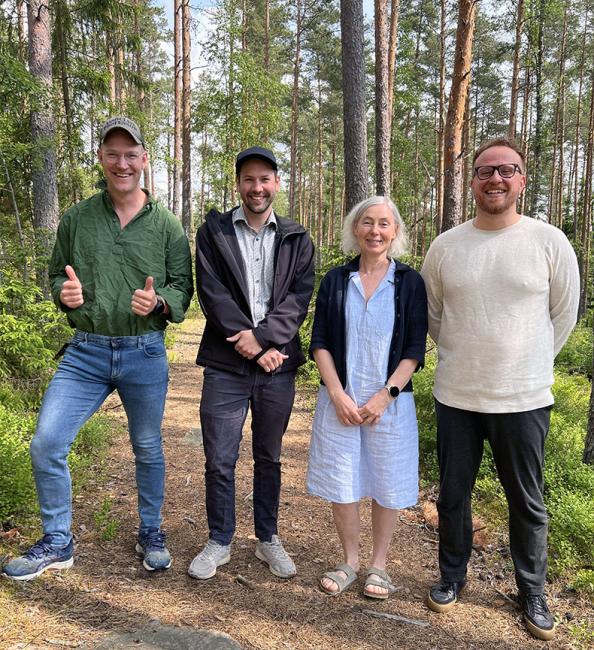Research for Sustainable Paper Manufacturing
2025-06-10A new research project has been launched to improve production efficiency and reduce resource consumption within the forestry industry.
– Sustainability is a central focus of the project, which aims to decrease energy and resource usage in the forestry sector, says Björn Sjöstrand, Associate Professor in Chemical Engineering. By developing user-friendly numerical models for optimizing dewatering and drying, the project promotes energy-efficient production and lower carbon emissions. The models enable simulations of various strategies without costly trials, accelerating the development of energy-saving processes.
The project also enhances resource efficiency through improved water management in the manufacturing process, which is critical in regions with limited water resources. Additionally, the project contributes to sustainability by making advanced modeling tools more accessible to various stakeholders, fostering equal access to technical solutions and strengthening the competitiveness of smaller companies. Apart from Björn Sjöstrand, participants in the project include Gunilla Carlsson Kvarnlöf, Senior Lecturer in Chemistry; Kamal Rezk, Senior Lecturer in Environmental and Energy Systems; and Carl-Anton Karlsson, Laboratory Engineer.
Industry Collaboration
– In this project, we will seek collaboration with companies that wish to develop more sustainable processes by contributing their data, says Björn Sjöstrand. The research will further refine numerical models to simulate the dewatering and drying of cellulose-based materials. The goal is to create user-friendly models applicable to various manufacturing processes in aqueous environments. These models should be usable by operators and engineers on standard computers with existing software, such as Microsoft Excel.
Efficient large-scale production on a paper machine requires extensive experiments, especially regarding dewatering, as the process relies heavily on vacuum, pressing, and drying. Pilot and full-scale trials are costly and time-consuming, limiting the implementation of new strategies. Validated numerical models for dewatering in forest-based material manufacturing offer a solution that facilitates scaling and improves efficiency. These models can enhance energy efficiency without interrupting production and reduce the number of required trials.
By providing paper producers and machine manufacturers with easy-to-use tools for simulating and optimizing dewatering, production speed can be increased, and energy consumption reduced. For manufacturers of cellulose-based materials, the project presents an opportunity to test new materials and processes more quickly and cost-effectively. The research could also inspire other sectors to adopt similar modeling methods, triggering a chain reaction of innovation and sustainability. Access to user-friendly models could lower the barrier for smaller companies to participate in advanced process optimization, promoting increased competition and innovation in the industry.
Academy for Smart Specialization
The project is funded equally by Region Värmland and Karlstad University within the partnership Academy for Smart Specialization. Karlstad University and Region Värmland initiated the strategic partnership in 2010 to support research and innovation linked to regional development. The partners collaborate to renew the business sector in Värmland, the public sector, and research, innovation, and education at Karlstad University.




